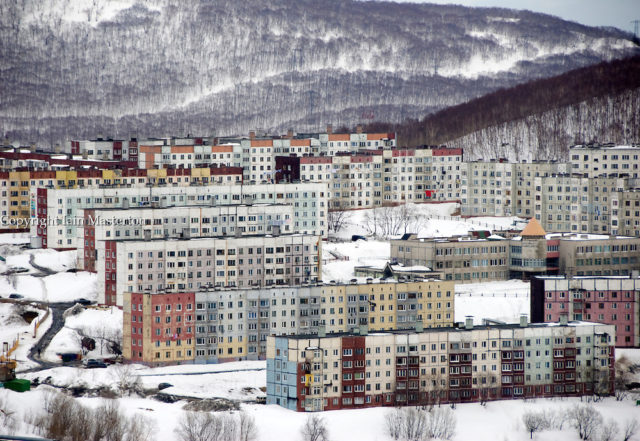
‘Russians Are Not Fools’—Moscow Failing to Encourage Significant Migration to Far East
Publication: Eurasia Daily Monitor Volume: 15 Issue: 12
By:

Since the 19th century, Russian rulers have sought to encourage Russians to move to the Far Eastern borderlands of the country in order to defend it against possible encroachments by China, Japan or even the United States. Sometimes, when people elsewhere were desperate enough, as was the case for Ukrainians at the end of the 19th century, these moves occurred more or less voluntarily—although in nowhere near the numbers the regime wanted. At other times, such as under Joseph Stalin, Moscow was prepared to use force to accomplish its goal: it then succeeded in moving people to the Far East but was never able to hold them there once there was any chance of returning to European Russia or abroad. And sometimes, as in the post-1953 Soviet Union, it was able to attract people, again for short periods, by offering often large subsidies to those who would agree to work there; but again, Russians went and then left as soon as they had saved enough to make a difference in their lives.
That system collapsed under Mikhail Gorbachev, when the Soviet government ran out of money. And with the implosion of the Soviet Union in 1991, and the end of registration rules that sometimes but not always forced people to remain where the regime wanted them to be, Russians started to flee the Far East in record numbers. The population of the region has decline by more than a third since that time.
More recently, Vladimir Putin has tried a number of measures to cajole Russians into relocating to the Far East. He has been particularly motivated by the rise of China and Chinese neo-imperialism in Siberia and the Russian Far East: in many places in that region, there are now more ethnic-Chinese residents than indigenous groups (Nezavisimaya Gazeta, July 26, 2017). However, all those measures are failing because, as the Irkutsk news outlet Babr24.com points out, “Russians are not fools.” They have little interest in moving to a region without basic infrastructure, good economic prospects or even any certainty that Moscow will live up to the promises it has been making over the last two years (Babr24.com, January 20, 2018).
The first of these new Kremlin initiatives, the Babr24.com report says, was an offer by Moscow to give five free hectares of land to anyone who moved to the Russian Far East and remained there at least five years. That has failed: only 34,000 Russians have expressed interest, far fewer (only about 1,100) have actually gone, and a significant fraction of those have returned when they discovered what the local conditions are like—no roads, no schools, no jobs and no future. Now, the Kremlin is offering to pay anyone who moves to the Far East a million rubles ($16,000) if they remain there. Initially, the Russian government said people would have to stay at least three years to receive the money; but with few takers, Moscow then lowered the minimum residency stay to two years (Gazeta.ru, January 19). Yet, even this perk has not been enough to draw very many Russians to the region. So the center has proposed sending Ukrainian refugees or guest worker from Central Asia to the Russian Far East, something few of the former have agreed to and that many of the latter reject, given the hostility they encounter from ethnic Russians in the region (Babr24.com, June 30, 2017).
Moscow has even created a special ministry for the development of the Far East, but that institution acknowledges that “the demographic situation in the region continues to remain complex,” a euphemism for disastrous. According to the Far East development ministry, “the outflow of the population continues” once people experience “the low quality of life and of the social sphere and the poorly developed infrastructure” (Og.ru, January 19), including roads that do not exist or that feature more accidents than traffic (The Moscow Times, January 16; Svpressa.ru), January 14).
Many Russians in the Far East say that the government in Moscow has failed to address these infrastructure issues, preferring instead to promote “mobility artificially.” But that does not work, because when people discover what the region lacks, they leave as soon as they can. “It would be wiser,” they say, “if the state were to invest in the economic development of these regions, to provide developed infrastructure […], communications, workplaces and social support of those who do resettle” (Babr24.com, January 20). For now, Moscow has not done so. And until it does, three things are certain: More Russians will leave the area than arrive, changing the ethnic balance in favor of the non-Russians in the region. More of both groups will become increasingly fearful of China and its activities in the region. And more people in the Russian Far East will be attracted to various regionalist forms of protest against the center.
All three of those developments will present challenges to the central government. But Moscow under Vladimir Putin seems to have no idea how (and possibly no interest) to take the kinds of steps, admittedly expensive and long term, that might turn its failure in this area into a success.



